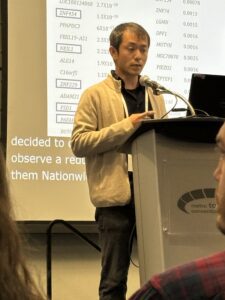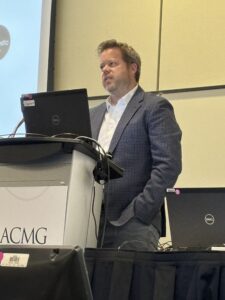The overwhelming majority of rare diseases and conditions have a genetic basis. This means that the disease is the result of a genetic abnormality such as a mutation. These abnormalities can appear seemingly at random or can be inherited from a patient’s parents. This year, Patient Worthy was in attendance at the American College of Medical Genetics and Genomics (ACMG) 2024 Conference, an annual event which was held this year in Toronto, Ontario, Canada.
This conference is an educational event in which medical genetics researchers and scientists from across the world can converge to share and present on the latest advances in the field. The event is a critical opportunity that provides crucial continuing education for medical genetics professionals. Genetic testing is a centerpiece of diagnosis for genetic disorders, and the accessibility of advanced forms of testing, such as whole genome sequencing, has increased greatly in recent years as the cost of conducting such tests has dropped significantly. Meanwhile, test results are able to be processed much more quickly than in the past.
Additionally, more advanced forms of sequencing that can read the genome in greater detail and find genetic abnormalities and variants that previous forms might miss are also in the development stage. Such advances give patients living with undiagnosed genetic diseases greater opportunities to finally receive a diagnosis.

In a session titled “Think Rare: Solving the Undiagnosed Cases Beyond Exome or Genome Sequencing” researchers presented on special cases in which they were able to solve a diagnosis using other forms of testing, highlighting that the standard sequencing test is not always the best route.
Another session titled “Long-Read Sequencing: Diagnosing the Undiagnosed Through Comprehensive Clinical Genetic Testing” discussed a more advanced method of sequencing that researchers claimed could potentially replace all currently used testing methods.

The ACMG Foundation also held its Day of Caring event during the conference. Specially modified bicycles are presented to children living with rare disorder from Kerry’s Place, the largest service provider for young people with autism in Canada, and the Sickle Cell Awareness Group of Ontario.



